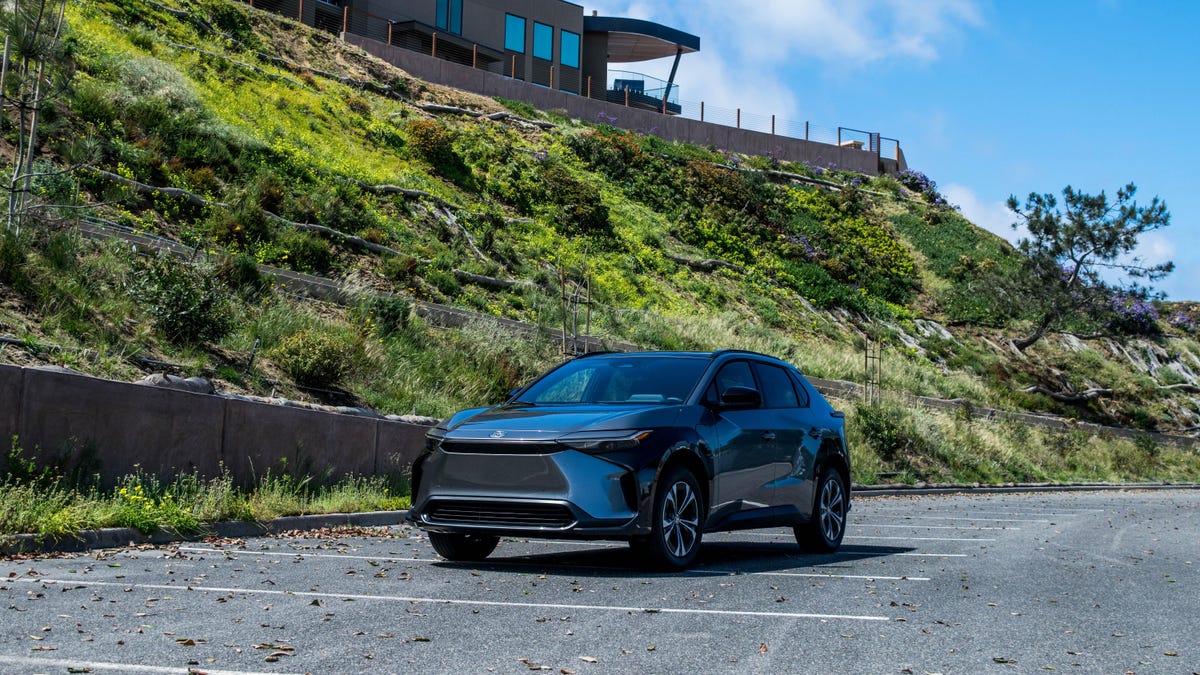This Is The Biggest Argument Against The Toyota bZ4X EV

Image: Elizabeth Blackstock
There is a steady shift in the market towards more affordable and usable electric vehicles. Whereas EV options used to be either very small or very expensive, automakers now have offerings that are “right-sized” and with “reasonable” prices. Unfortunately, Toyota’s upcoming bZ4X is already at a disadvantage in the market despite being a solid product.
Toyota and Subaru have partnered up to sell what is essentially the same electric car. Toyota will have the bZ4X and Subaru will sell the Solterra. We covered in detail how these two are so closely aligned that the average person would likely not notice the difference between them. The dimensions, power plant, and even exterior styling are identical. Except there is going to be one key differentiator between the two models, and it has to do with the net price that consumers will pay.
The Toyota bZ4X has a starting price of about $42,000 for a front-wheel-drive XLE while an all-wheel-drive Limited will have a sticker price of about $49,000. Subaru has not yet released pricing for its Solterra, but given the similarities between the two cars, buyers can probably expect a range from $40,000 to $50,000.
However, the Federal Tax Credit of $7,500 will apply to the Subaru but not the Toyota.
Given Toyota’s success with its EVs and PHEVs, the automaker has currently sold about 190,000 vehicles to date. This means that Toyota is scheduled to reach the 200,000 unit threshold very soon. Toyota dealer contacts are telling me that June 30th is likely the deadline for the tax credit, which is why so many folks are scrambling to secure a RAV4 Prime before then.
On the other hand, Subaru has not sold many electric vehicles, having only sold the Crosstrek PHEV in very low volumes. Therefore, the Solterra will qualify for the $7,500 tax credit well into its production run. Given that the Solterra and bZ4X are the same cars, consumers are bound to prefer the Subaru over the Toyota since the government is going to give them a sizable chunk of change back in their pocket when they file their tax returns.
This tax credit system for EVs puts brands like Tesla, GM, and Toyota at disadvantage in the marketplace even though they “invested” in EV platforms earlier than others. While other automakers like Hyundai, Kia, and Ford will still benefit from these credits making their cars “cheaper” than the competition.
There have been some proposed legislation to expand these tax credits, but it has hit political roadblocks and it has some controversial stipulations. Some folks may argue that tax credits should have never played a role in the “affordability” of EVs, but this is the current market reality with no real solid solution in sight.



